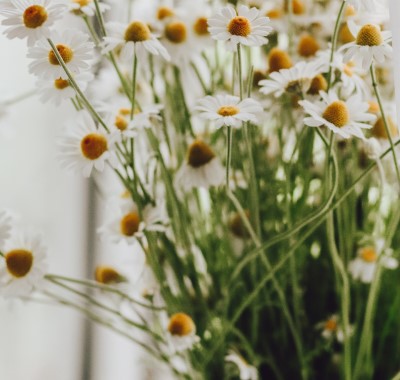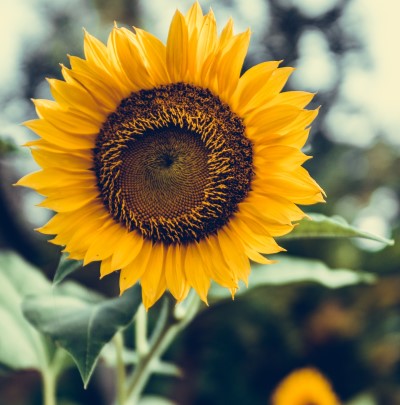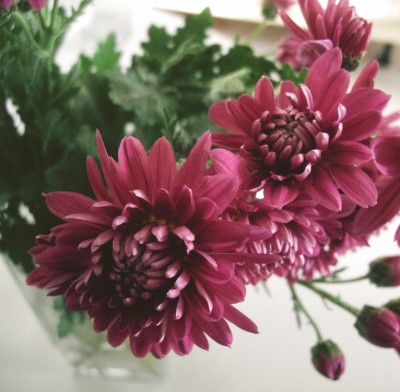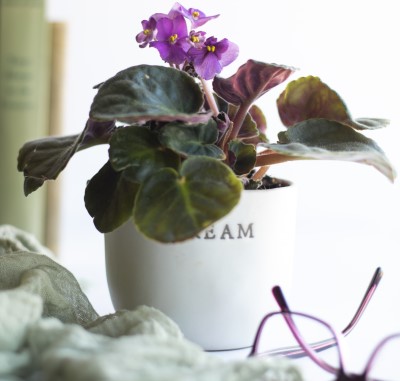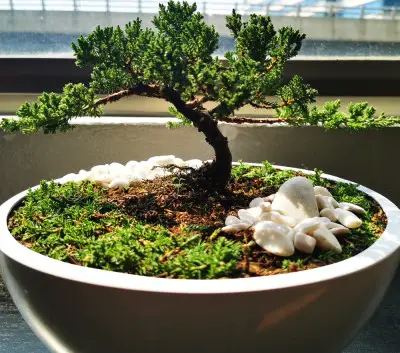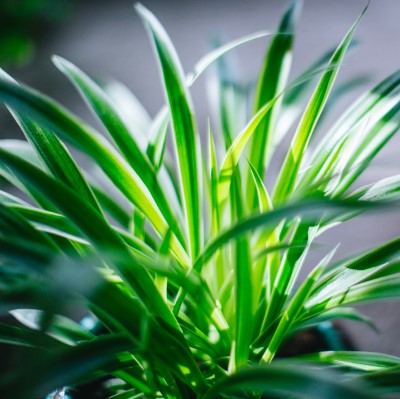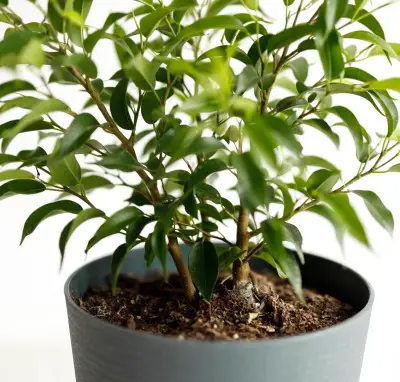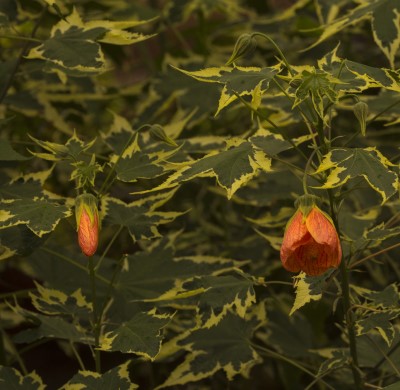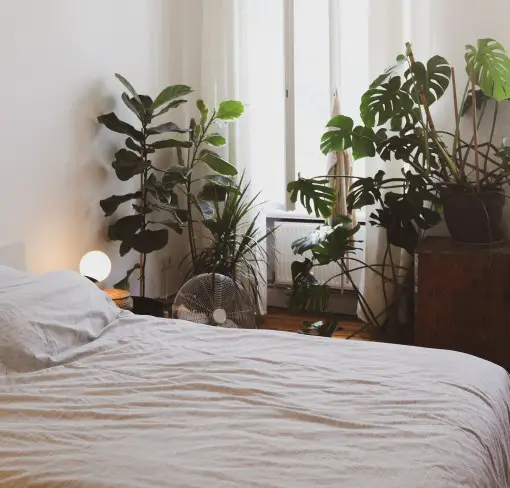
Are plants in the bedroom bad for allergies? – What we know and what to avoid
By Jason Wooden, PhD | October 26, 2021
While there’s no definitive answer, limited research suggests that plants in the bedroom can trigger or worsen allergies for some individuals. The main concerns are pollen, spores, mold, and mites in accumulating dust.
Depending on your situation, your options include trying less allergenic plants, regular room cleanings, avoiding other allergen sources, using an air purifier, and seeing a doctor.
CONTENTS:
1) Why it’s a serious question
2) What allergies do to our sleep
3) Are plants in bedroom bad for allergies? (Which ones to avoid)
4) 3 ways plants may improve your bedroom environment and sleep
5) 9 things to try if you’re worried about allergies
6) What else you should check for your sleep environment
Why people are asking whether plants in the bedroom are bad for allergies
It’s no surprise if you’re wondering whether your bedroom plants could be bad for allergies and your sleep.
With 66 percent of US consumers owning at least one plant, there are bound to be more than a few who struggle with allergies.
It’s safe to assume house plants are just as popular in many other countries.
Nonetheless, allergies can be pretty frustrating whether it’s day or at night. So, anything that could make them worse is to be avoided.
Every year more than 50 million Americans struggle with various types of allergies. Worldwide allergies may affect up to 30 percent of people.
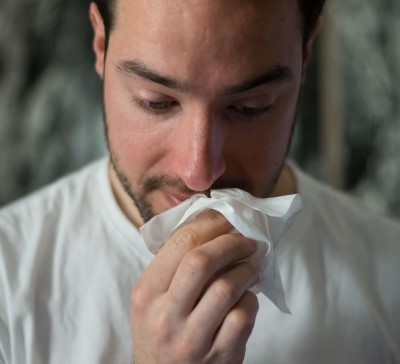
A runny nose isn’t the only allergy issue from plants in a bedroom
That’s a lot of people struggling runny noses, congestion, sneezing, and watery eyes. There’s also the itching, rashes, swelling, diarrhea, and vomiting in more severe cases.
An allergy is what happens when your immune system reacts to something that normally doesn’t bother people.
Among the things that can cause an allergy are:
- pollen
- mold
- dust mites
- insect stings
- food
- drugs
- latex
Should house plants be added to the list?
Is it really an issue for your bedroom?
After all, you spend at least a third of your life there sleeping…
Let’s take a look at what we know, some positives, and what you can do for allergies if you decide to keep plants in your bedroom.
What allergies do to our sleep
Allergies can sap your energy, dampen your mood, and make it harder to get things done during the day.
Would you believe people with allergies are also twice as likely to experience insomnia?
All the stuffiness, sneezing, and coughing can make it harder to fall asleep AND harder to stay asleep.
We’ve all had one of those miserable nights when every time you’re drifting off to sleep you cough yourself awake.
What’s worse is that when you’re congested it may increase your risk for snoring and sleep apnea, a common sleep disorder which happens when air flowing to your lungs is restricted. The drop in oxygen arouses your body out of deep restful sleep into a lighter sleep.
It’s a real sleep killer that can leave you in the morning feeling as if you haven’t slept at all.
Nonetheless, you pay a price when you lose out on sleep.
Sleep deprived people don’t think as clearly, have a harder time coping, and don’t perform as well at school or on the job.
And chronic sleep loss puts you at risk for all sorts of issues including diabetes, high blood pressure, cardiovascular disease, anxiety, and depression.
We really need our sleep.
Unfortunately, two thirds of people with hay fever struggle with poor sleep.
So, allergies from plants in the bedroom or other causes are not to be taken lightly.
Are plants in the bedroom bad for allergies?
Okay, now we get to the real question, whether you should be worried that plants in your bedroom will trigger or worsen your allergies.
Unfortunately, this is one of those things that isn’t as well studied as you think it would be.
You do find people complaining online in various forums about allergies to their house plants.
As far as the research, there are reports of allergic reactions to common house plants, including:
- Plant keepers who handle indoor plants developing allergic reactions
- A study involving 59 people finding that ornamental plants caused adverse reactions in patients with allergies
- A report of individuals developing allergy symptoms to Hoya plants
- One report of someone getting a severe allergy after bedroom exposure to a Ficus plant
However, there is no definitive answer to how common it’s a problem which is surprising given how many people own house plants.
All the same, the main concerns are:
- pollen, especially from flowering plants
- spores
- mold
- accumulated dust containing mites
- bugs
So, it’s possible that some plants in the bedroom could trigger or worsen allergies. If you’re prone to allergies, it’s worth avoiding plants with known allergy issues.
Some examples of plants linked to allergies:
3 Ways plants may actually improve your bedroom environment and your sleep
So far, we’ve looked at the allergy downsides from keeping plants in the bedroom. However, it’s not all bad news.
It turns out plants may improve your bedroom environment in ways that could be beneficial to mood, sleep, and well-being:
Boost mental well-being
Research has shown that your environment can influence mood and sense of well-being. Indoor plants add color and vitality to a bedroom making it a more pleasant space that improves your mood.
Reduce stress
Indoor plants can have indirect psychological effects on health and stress.
Studies have shown that interacting with indoor plants can reduce physiological and psychological stress.
One Japanese study found that employees that kept a small plant on their desk had lower levels of anxiety and stress at the end of a four-week period.
Improve indoor air quality
This may be beneficial to people with health issues such as asthma, but it’s hard to say how much since the research so far is mixed.
Some research has shown indoor plants can help filter out indoor pollutants such as formaldehyde and benzene. However, a recent meta study concluded that potted plants do not improve air quality.
How beneficial this could be likely depends on the number and types of plants, how big they are, and the size of the indoor space.
9 things to try if you’re worried plants in the bedroom causing you allergies
Depending on your situation, there are plenty of things you can try before you give up on keeping plants in your bedroom because of allergies. Some remedies are simple while other may require an investment of time or money.
For starters, what you want to avoid is:
- Heavy pollen and spore producers
- Plants with large leaves
- Plants requiring consistently damp soil which can promote mold
If you feel like you’re always getting sick, with a cough or head congestion, the American College of Allergy, Asthma & Immunology recommends you see an allergist.
See a doctor sooner rather than later if:
- Your symptoms are getting worse
- You’re getting complications such as sinus infections, nasal congestion, or difficulty breathing
- Your allergy meds are not working or you’re experiencing unacceptable side effects
- It’s hard to do things
- It’s hard to catch your breath
- Frequent shortness of breath or chest tightness
Source: ACAAI
Your options to keep your symptoms more manageable:
2) Try a less allergenic plant
This one is obvious. If you have plant that’s flowery, a super pollinator, or one of the types to avoid, you can try something different.
It’s worth a trip to your local gardening store to inquire if they have any house plants that might work better for people with allergies.
5) Keep out other allergen sources
If you own a pet, keeping them out of the room may help make your allergies more manageable. Some research has found that being allergic to dogs or cats may worsen ragweed allergies.
6) Allergy medications
This one is pretty obvious. Your choices include antihistamines, decongestants, and nasal steroids. Depending on your symptoms, it may not be the best long-term solution.
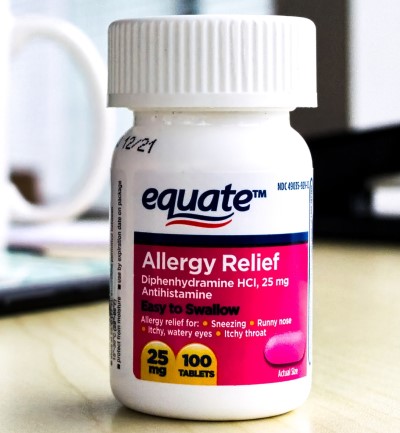
7) Allergy shots
Also known as allergy immunotherapy, a doctor can give you a specialized shots to train your immune system to react less to dog allergens.
Other things besides plants that can affect your bedroom sleep environment
Your bedroom can have a big impact on how easily you transition to sleep and how well you sleep. Obviously, allergies from bedroom plants isn’t the only thing to think about.
Having a great sleep environment is one of the most important sleep hygiene rules.
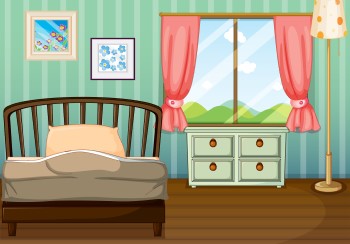
Some of the things to check for are:
Keeping it dark
Bright light can interfere with your body’s natural sleep-wake cycle and keep you from feeling sleepy. Even small amounts of ambient light can affect melatonin production and keep you from getting quality sleep.
Keeping it quiet
Nuisance noises can keep you from falling asleep and keep you out of restful deep sleep even when you’re not awake. Experts recommend you turn off your TV or radio. Try using ear plugs or white noise if there are surrounding sounds you can’t get rid of.
Keeping it cool
Cooler room temperatures help your body’s natural sleep process. A temperature between 60 and 67 degrees Fahrenheit is optimal for sleeping with 65 degrees being the sweet spot.
Obviously, everyone’s body is a little bit different. You don’t want to lay in bed shivering because your bedroom is too cold. You also don’t want to toss and turn because you’re too hot.
What you can do:
- monitor your indoor humidity level
- regularly ventilate your room
- keep furniture away from walls so the air circulates
- use a dehumidifier (air conditioner in hot humid climate)
- regularly vacuum and clean your carpet
- switch from carpets to bare floors
Sources:
1. “Gen Z Houseplant Ownership Stems from the Desire to Care for Something Alive”, 2020, Civic Science
2. “Allergy Facts and Figures”, Asthma and Allergy Foundation of America website
3. “Allergy Statistics”, American Academy of Allergy, Asthma & Immunology website
4. “Allergy”, MedlinePlus website
5. “Allergies”, NHS website
6. “Allergies and Sleep”, 2020, sleepfoundation.org
7. “Don’t Let Allergies Ruin Your Sleep”, Rheumatology and Allergy Institute of Connecticut,
8. Occupational allergic contact dermatitis and contact urticaria caused by indoor plants in plant keepers. Contact Dermatitis. 2020 Dec;83(6):515-518.
9. Severe isolated allergy to Ficus benjamina after bedroom exposure. Allergy. 1993 Aug;48(6):466-7.
10. High incidence of sensitization to ornamental plants in allergic rhinitis. Allergy. 2006 Sep;61(9):1138-40
11. Occupational rhinoconjunctivitis caused by the common indoor plant, Hoya compacta. Occupational Medicine, Volume 67, Issue 6, August 2017, Pages 490–492.
12. “Why Are My Allergies Worse Indoors?”, 2021, MedicineNet
13. “Hypoallergenic Houseplants: Best & Worst Plants for Allergies”, New York Sinus Center website
14. “Best Plants for Indoor Allergies: Can They Help or Cause More Problems?”, 2019, Molekule
15. “The Connection Between Your Home and Your Sense of Well-Being”, 2018, UW Health website
16. The basic roles of indoor plants in human health and comfort. Environ Sci Pollut Res Int. 2018 Dec;25(36):36087-36101.
17. Interaction with indoor plants may reduce psychological and physiological stress by suppressing autonomic nervous system activity in young adults: a randomized crossover study. J Physiol Anthropol. 2015; 34(1): 21.
18. “This 3-minute, $3 habit could lower your stress and anxiety at work”, 2020, cnbc.com
19. “8 Healthy Benefits of Indoor Plants, According to Horticulture Experts”, Prevention.com
20. Potted plants do not improve indoor air quality: a review and analysis of reported VOC removal efficiencies. J Expo Sci Environ Epidemiol. 2020 Mar;30(2):253-261.
21. “Pet allergies worsen hay fever symptoms, study finds”, 2010, ScienceDaily
Connect with us:
About Us
Better Sleep Simplified® was founded as a place for you to get clear and well-researched information.
Our goal is to make sure you know about your options so that you take action sooner rather than later.
Check us out on YouTube:
Watch and Learn
Helpful sleep tips, interesting sleep facts and statistics you want to know about
Affiliate Disclosure
This site is a participant in the Amazon Services LLC Associates Program and other affiliate advertising programs designed to provide a means for sites to earn advertising fees by advertising and linking to them.
Important: BetterSleepSimplified.com is for informational purposes only and is not intended or implied to be a substitute for professional medical advice, diagnosis, or treatment. Always consult a physician for sleep and health concerns. See additional information.


